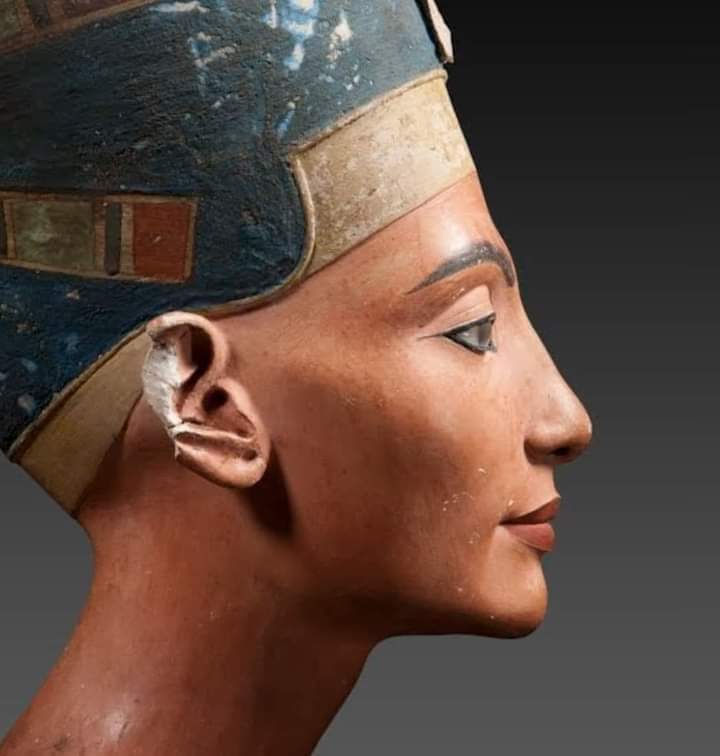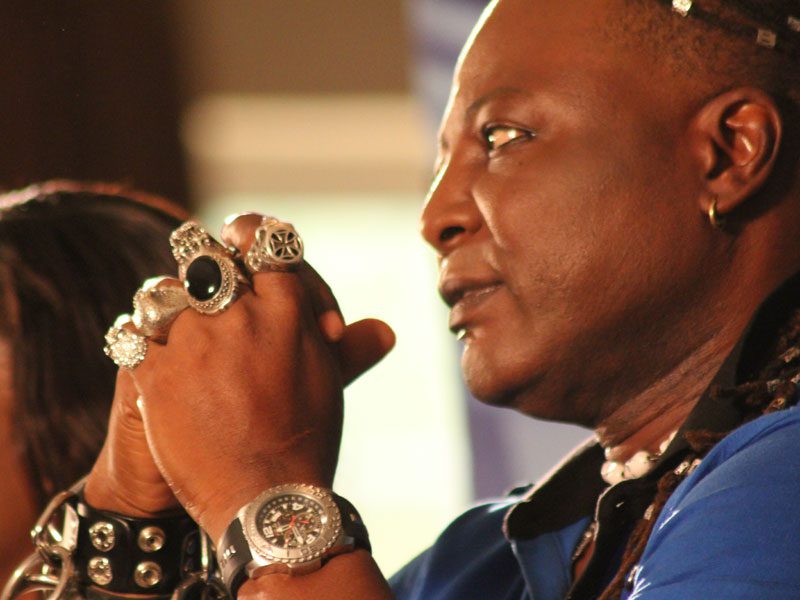Global Issues
How Egypt Became Arabized -By Makandal Speaks
At one point in Egypt, there was “Pharaohism” in the 1920s and 1930s which brought forward the pre-Islamic history of Egypt. Taha Hussein was the movement’s most prominent scholar. Ibrahim echoes some of Hussein’s ideas by saying that:

In 1978, Unesco published The Peopling of Ancient Egypt and the Deciphering of Meroitic Script [1], which was the subject of a symposium held in Cairo (Egypt) in 1974. One of the issues discussed was racial identity of the inhabitants of Kemet (or ancient Egypt). Jean Vercoutter in particular presented a very interesting argument. Vercoutter explained that “even Egyptologists convinced of the predominantly African nature of Egyptian civilization point out that the people who founded this civilization were not ‘Negroes’.” In other words, even for those who were skeptical that Egyptian civilization was founded by blacks, the fundamental African nature of that civilization was indisputable. This is why Vercoutter wrote:
“A distinction must be made between race and culture. In its language, its writing and its mentality, there is no doubt that Egyptian civilization is above all African, even if, over the millennia, it has borrowed certain cultural elements from its eastern neighbors. “
I mention it because Vercoutter’s position was contrary to that of Théophile Obenga. Drawing on the work of Cheikh Anta Diop, Obenga argued that:
“The Egypt of the Pharaohs, because of the ethnic character and the language of its inhabitants, belongs fully, from its Neolithic childhood to the end of the indigenous dynasties, to the human past of the black peoples of Africa”.
Even those who opposed the idea of a fundamentally black society in Egypt were still compelled to recognize the African nature of ancient Egyptian society. Therefore, for the purposes of this article, I will focus more on culture than race due to the Arabization process in Egypt which was largely a cultural process.
In Africa-Man, there is a chapter on Arab imperialism in Africa. In this chapter, I deal with the Arab conquest of Egypt in the 600s and the subsequent conquest of Egypt by the Ottoman Empire, which was an Islamic empire. Turkish rule in Egypt ended after the 1952 revolution, which brought Gamal Abdel Nasser to power in the country. According to Raymond Ibrahim, this is where the Egyptian “identity crisis” began. Mr Ibrahim wrote:
“The revolution significantly Arabized Egypt. The fact that Egypt’s official name has become the Arab Republic of Egypt, as opposed to just the Egyptian Republic, speaks for itself. While before 1952 one might have spoken of a distinctly “Egyptian” character and identity, this identity was later replaced by an Arab identity. From there it was a brief push towards an Islamic identity. “
Egypt not only became an Arab republic, but after a brief period it formed the “United Arab Republic” with Syria. Nasser was committed to pan-Arabism, although he found great success with it. Nasser was also a Pan-Africanist and was one of the key figures in the formation of the Organization of African Unity (OAU).
The question that some Pan-Africanists have begun to ask the Arab population of North Africa is whether these Arabs really consider themselves Africans. This was a question Robert Sobukwe had thought about. He asked :
“Are they Arabs or Africans? “
The fact that Egypt proclaimed itself an Arab Republic settled this issue as far as Egypt was concerned, but the question of Arab identity in Egypt remained a contested issue. Ibrahim writes:
“In short, the Egyptians saw themselves first and foremost as Egyptians. Certainly no Egyptian would have called himself “Arab,” a word that at the time denoted “modest Bedouins” to Egypt’s ears. (After all, it also makes sense that Egyptians consider themselves “Arabs,” since their mother tongue is Arabic, that black Americans consider themselves to be “English,” because their mother tongue is Arabic. English). “
At one point in Egypt, there was “Pharaohism” in the 1920s and 1930s which brought forward the pre-Islamic history of Egypt. Taha Hussein was the movement’s most prominent scholar. Ibrahim echoes some of Hussein’s ideas by saying that:
“Egyptian identity must be resurrected, thus enabling all sons and daughters of the nation to work together for a better future, free from the foreign burdens of Arabism or, worse, Islamism. “
One of the problems with Taha Hussein’s approach was that he saw Egypt as a Mediterranean civilization. Hussein read a lot of European literature and sought to establish some kind of cultural link between the Egyptian people and Europe. Hussein wrote that Egypt “has always been part of Europe as far as intellectual and cultural life is concerned, in all its forms and in all its branches.” He envisioned a shared Mediterranean culture encompassing Egypt, Greece, Rome and the Arabs. In doing so, Taha Hussein ignored the African cultural element of Egypt.
The point is that Egyptian civilization maintained much closer ties with other African civilizations than it established with Mediterranean civilizations. As I explained in the first chapter of I Like What I Write, the epicenter of dynastic Egyptian civilization was south of Upper Egypt and Nubia. Egypt was unified by a ruler from Upper Egypt, and most of Egypt’s most important dynasties came from the south or Nubia. In this chapter, I pay special attention to the 12th, 18th and 25th dynasties. This is why even those who are skeptical that Egypt was a black civilization were forced to recognize that Egypt was culturally African due to the dominant role played by Upper Egypt (and sometimes Nubia ) in the formation of the dynastic Egyptian civilization.
Taha Hussein’s writings sparked a serious debate about Arabism in Egypt. Hussein wrote that the Arabs were among various invaders who inflicted “injustice” and “aggression” on Egypt. Taha Hussein’s writings sparked a reaction from those who defended the Arab regime. This included Hassan al-Banna, founder of the Muslim Brotherhood. Banna argued that Arab rule was “enlightening and spiritual cultural imperialism” in Egypt. According to Banna, Islam saved Egypt from “the filth of paganism, the rubbish of polytheism and the habits of Jahiliyya.”
While Nasser’s Arab nationalism was secular, the Muslim Brotherhood and other Islamic organizations seek to Islamize Egypt. Such a position also has little relevance to the pre-Islamic history or customs of Egypt. In fact, many Muslims have come to despise the history of Egypt because it reminds them of “Jahiliyya” or the period in its history before the spread of Islam. This is something Wassim Al-Sissy lamented, explaining:
“Things are different for the Egyptians because they have a wonderful history, but people despise it”.
Al-Sissy also lamented that the 1952 revolution “erased the Egyptian character, known for its tolerance, love, freedom, etc.” The revolution created a nation of slaves. “
Rather than seeking to reconnect with Egypt’s African roots, the end of Turkish rule in Egypt simply helped strengthen Arab society and Islamize it. As Sunni Khalid has pointed out, one of the consequences of this situation is racial discrimination against blacks in Egypt [6]. Sunni explains:
“Of course, many African Americans look like Egyptians, across the color spectrum. I would often scan a busy street in Cairo and spot the faces of Egyptians whose faces reminded me of those of my family or friends.
while he was in Egypt. He explained:
“More than any other city on the African continent, the people of Cairo are like American Negroes in that we are all complexions; we go to America from the darkest black to the lightest skinned one, and here in Cairo it is the same; it is the same all over Egypt. “
Despite the obvious African appearance of a significant portion of the Egyptian population, Sunni notes that:
“Over the years, Egypt has struggled to come to terms with its African identity. Many Egyptians do not see themselves as Africans. Some even take offense at being identified with Africa.
Mona Eltahawy wrote an article in The New York Times in which she shows how deep-rooted racism in Egypt runs:
“We are a racist people in Egypt and we deny it deeply. On my Facebook page, I blamed racism for my argument and an Egyptian wrote to deny that we were racists and used as evidence a program on Egyptian radio featuring Sudanese songs and poetry!
Our silence on racism not only destroys the warmth and hospitality we are proud of as Egyptians, it also has deadly consequences.
On December 30, 2005, nothing but racism enabled hundreds of riot police to pass through a makeshift camp in central Cairo and rid 2,500 Sudanese refugees who trampled or beat 28 people to death. , including women and children? “
I started by talking about culture rather than race, because racism in Egypt is a logical consequence of a society that rejected Africa and chose to integrate into the Arab world, which, like the ‘explains Eltahawy, is racist against Africans. The Arabs were one of the many groups that invaded Egypt – such invasions were so commonplace that during Dynasty 12 rulers built a wall to prevent invading Asians from entering Egypt. But the Arabization of Egypt was not simply brought about by the Arab invasion. Before the 1952 revolution, there were serious intellectual arguments in Egypt over Egypt’s national identity. As I have already noted, even Egyptian intellectuals opposed to Arabism did not want to link the history of Egypt to Africa, but seeing Egypt as an Arab society is a topic that has was seriously debated before the 1952 revolution, but since then Arab identity has been firmly entrenched in Egyptian culture and politics and, as such, black people in Egypt have been marginalized in the “Arab Republic of Egypt” .


















